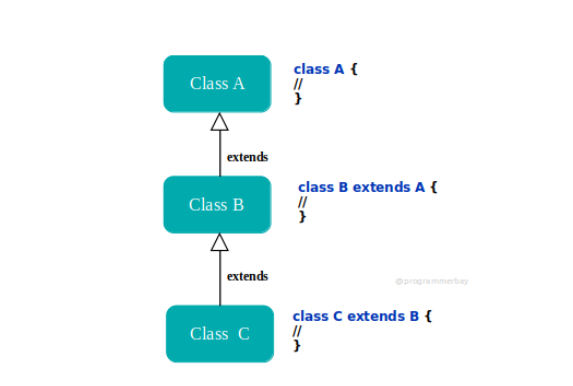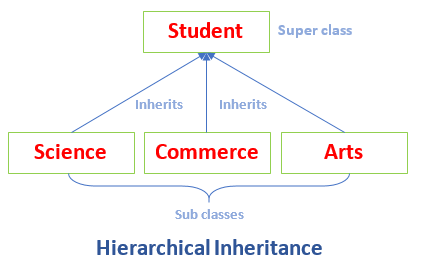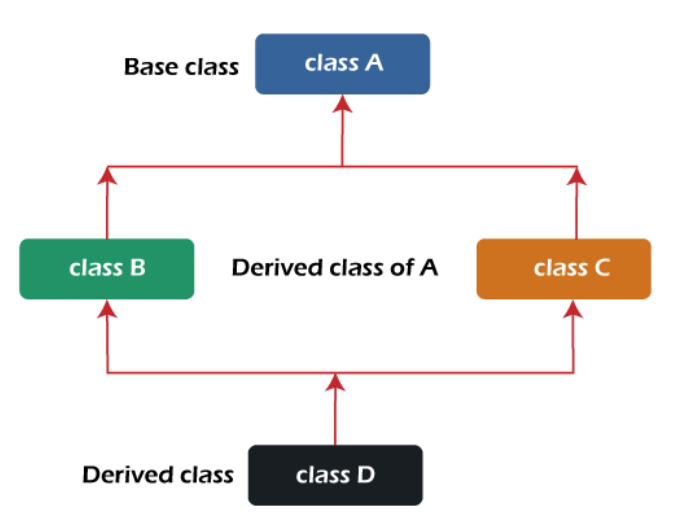In this blog explain what is Inheritance, How to use inheritance & Types of Inheritance.
Inheritance:-
An object of one class behaving as an object of another class. In Java, inheritance means creating new classes based on existing ones. Inheritance purpose is code re-usability.
class RBI
{
credit( )
debit( )
si( )
ci( )
}
class SBI extends RBI
{
}There are two major classes namely Parent class or Super class or Base class and Child class or sub class or derived class. Java using extends keyword.
- Single Inheritance
- Multilevel Inheritance
- Hierarchical Inheritance
- Hybrid Inheritance
- Multiple Inheritance
Java not Support the Multiple Inheritance.
Single Inheritance:-
* Single inheritance, Subclasses inherit the Parent class. example Ais Parent class and B is Child class.
Class A Parent class Class B is the derived class.

Multilevel Inheritance:-
Multilevel inheritance in Java is Type of Inheritance in which class that is already inherited by another class, inherites anthoer class.

Hierarchical Inheritance:-
Hierarchical inheritance is a type of inheritance in which a parent class can have multiple child classes. In other words, it is a type of inheritance in which a parent class serves as a base for multiple child classes, and each child class inherits properties and methods from the parent class.

Hybrid Inheritance:
It typically involves a mix of single inheritance, multiple inheritances, hierarchical inheritance, or multilevel inheritance. While hybrid inheritance provides flexibility, it can also introduce complexities and challenges.

Reference:-
chat.openai.com
programmerbay.com

